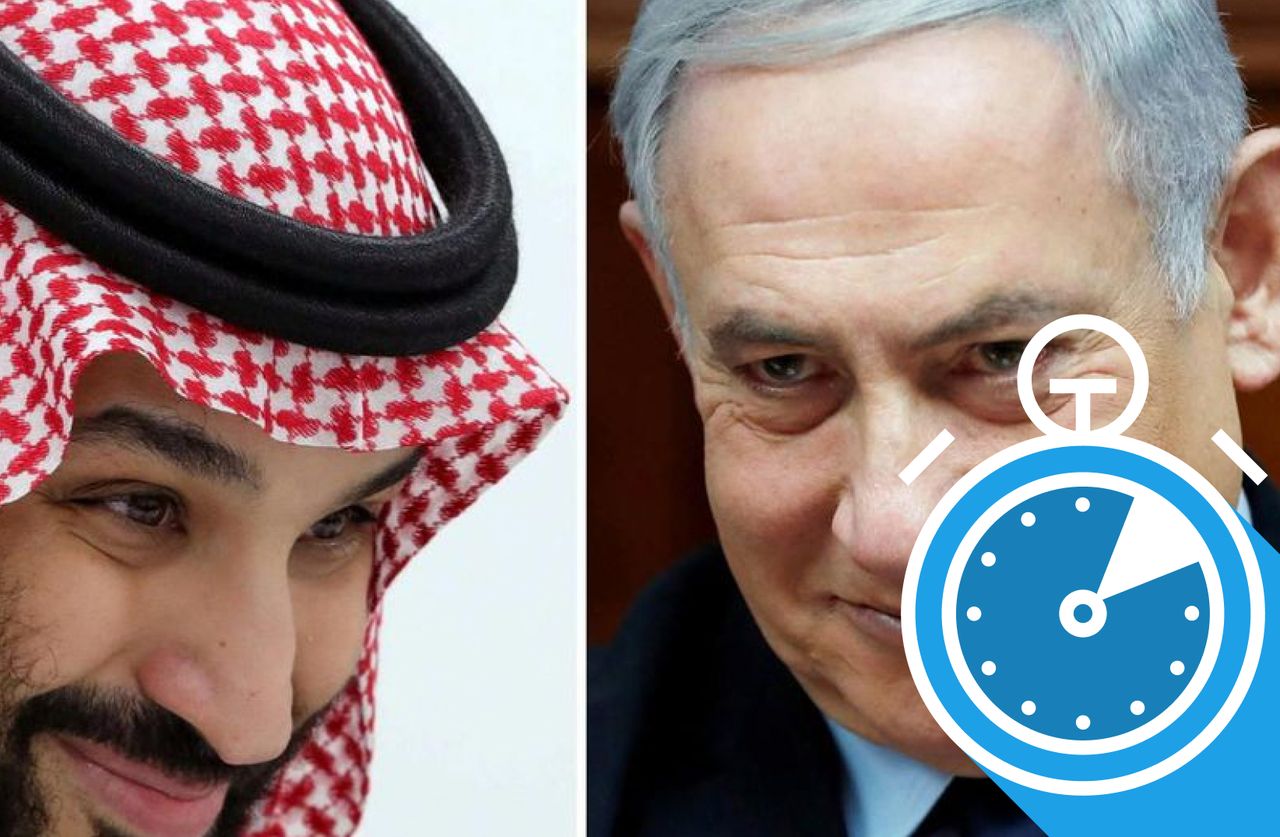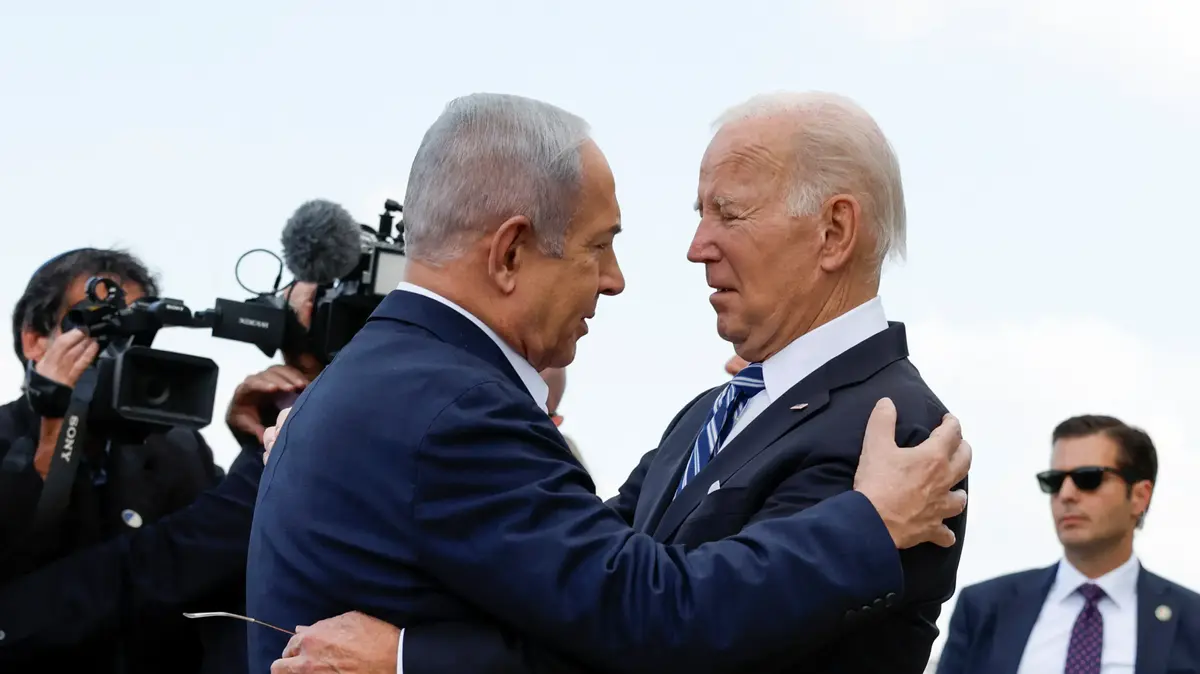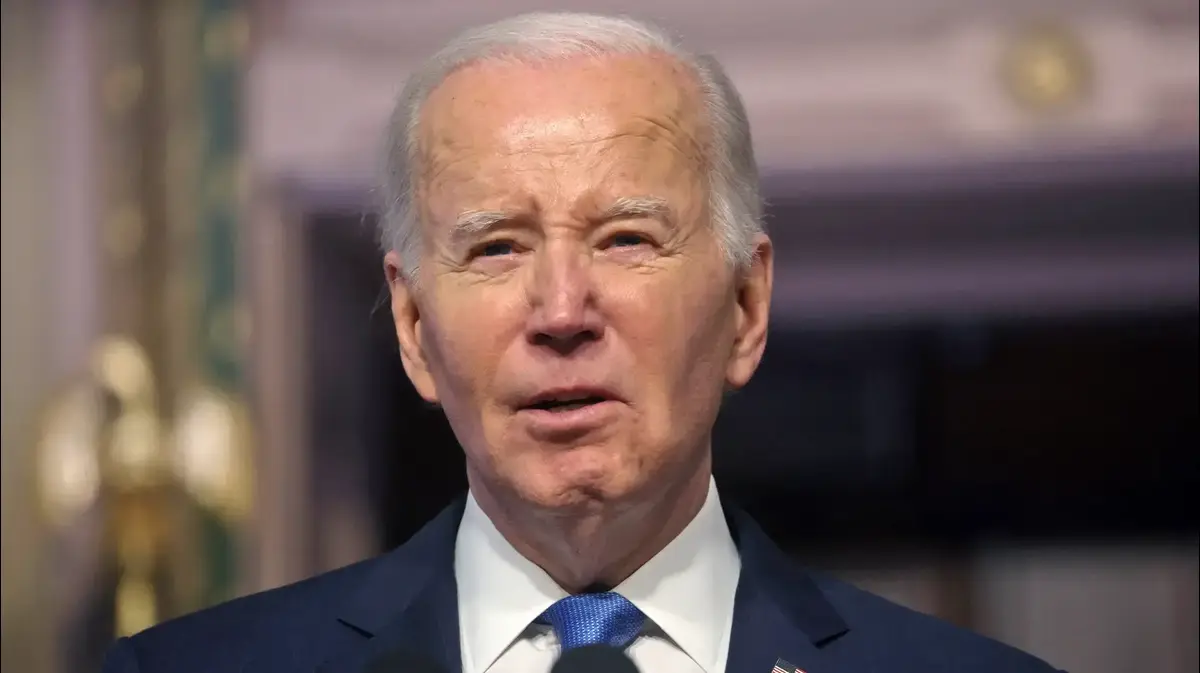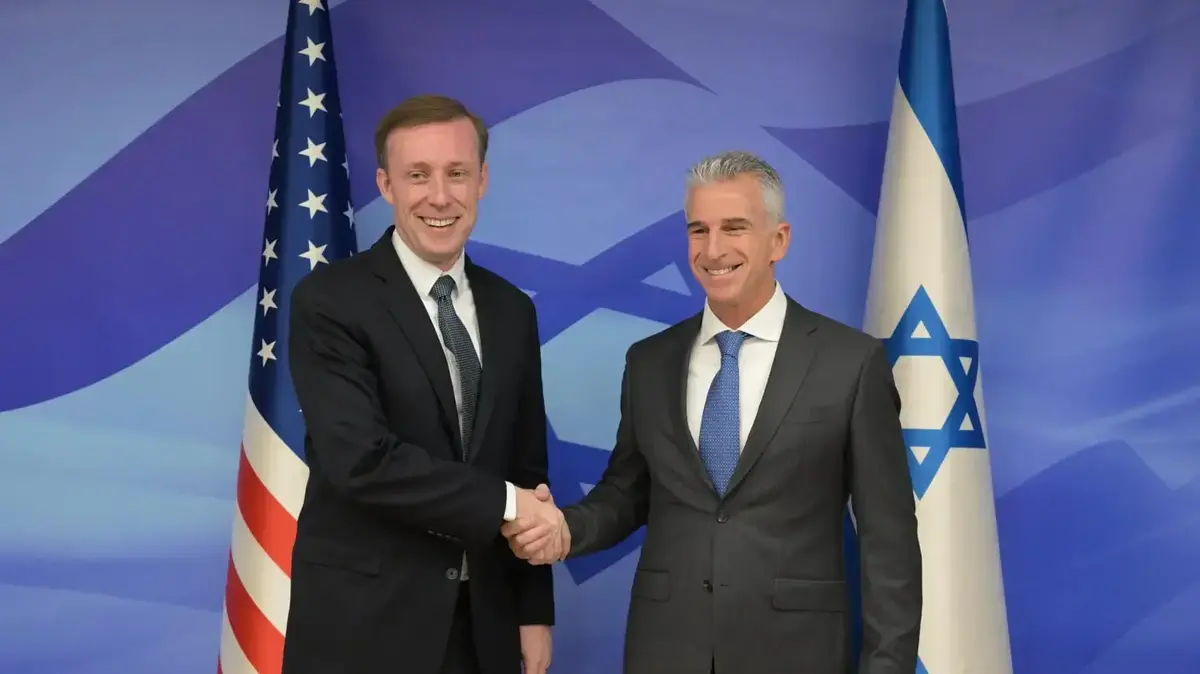On Sunday, the Israeli press revealed that Prime Minister Benyamin Netanyahu had secretly traveled to Saudi Arabia where he reunited with US Secretary of State Mike Pompeo and met with the Kingdom's Crown Prince Mohammed bin Salman (MBS) for a interview.
What the head of Saudi diplomacy denied on Monday.
A historical visit
Never has an Israeli head of government visited Saudi Arabia.
Since the creation of the State of Israel in 1948, the Arab states of the Middle East have, for the most part, placed it on a list of notorious enemies.
However, Saudi Arabia and the Hebrew state have started a rapprochement in recent years.
Sign of the warming of relations between the two countries, Crown Prince MBS received, in February, a rabbi based in Jerusalem.
A first in the modern history of the ultraconservative kingdom.
Mohammed al-Issa, a Saudi Arabian leader of the Islamic World League, this year participated in the commemorations of the 75th anniversary of the liberation of the Auschwitz Nazi camp.
The two powers do not have official diplomatic relations but maintain discreet links.
And if the Saudi kingdom has never officially recognized the existence of Israel, Crown Prince Mohammed ben Salman affirmed in April 2018, in the magazine The Atlantic, that the Jewish state had the "right to exist".
Normalization of relations between Israel and several Arab countries
In recent years, under the aegis of the United States, the Jewish state has moved closer to certain Arab Gulf countries, in particular those which share with it the same animosity towards Iran.
The Iranian power is indeed a regional adversary of the Saudi kingdom as well as of Israel.
READ ALSO>
United States - Iran: why so much hatred?
After Jordan in 1994 and Egypt in 1979, the United Arab Emirates became, in September, the third Arab country to officially recognize the existence of Israel by signing a historic agreement to normalize their relations in Washington.
Bahrain followed in Abu Dhabi's footsteps soon after.
Saudi Arabia has neither condemned nor welcomed these normalization agreements.
If the latter two countries are close allies of Riyadh, the kingdom has however made it clear that it will not follow their example.
Newsletter - Most of the news
Every morning, the news seen by Le Parisien
I'm registering
Your email address is collected by Le Parisien to enable you to receive our news and commercial offers.
Learn more
In the eyes of Saudi Arabia, the UAE and Bahrain have indeed broken an "Arab consensus" conditioning any normalization with Israel to a settlement of the Israeli-Palestinian conflict.
The Palestinian Authority had moreover qualified these recent agreements as “treason”.
Shortly after their signing, the kingdom nevertheless authorized the overflight of its airspace by planes "from all countries" towards the United Arab Emirates.
Strategic and economic advantages for Saudi Arabia
Normalizing Saudis' relations with Israel would strengthen a united front against Iran.
Establishing ties with Israel is also seen as an economic opportunity by some Gulf countries seeking to diversify their economies heavily dependent on oil exports.
They are particularly interested in technology, a sector in which the Israelis excel.
The Crown Prince has launched a vast reform program called "Vision 2030" with the aim of attracting international investment in the field of tourism or technology.
Heart of the Muslim world, Saudi Arabia, home to Islam's holiest places, would risk big by recognizing Israel, however, in terms of image among public opinion in the country and throughout the region .
Joe Biden's election could change US policy in the Middle East
Since the arrival of Donald Trump at the White House, the United States has made a radical shift in its policy towards Tehran, on the basis of a union in the face of the Iranian “threat”.
In 2018, the American president withdrew the United States from the Iranian nuclear agreement signed three years earlier.
The Republican has since stepped up sanctions against the Iranian regime.
With the election of Democrat Joe Biden to the White House, the position of the United States may well change.
Several analysts wonder about the future of the ongoing normalization of relations between Israel and Arab countries.
Some of them expect the American Democrats to be tougher than Donald Trump on Saudi Arabia because of his view of fundamental rights, especially after the Khashoggi affair.
Democrats could also try to re-engage with the Palestinians.
An initiative that could strain their relations with Israel again, against the backdrop of an Israeli-Palestinian conflict that does not seem close to being resolved.














